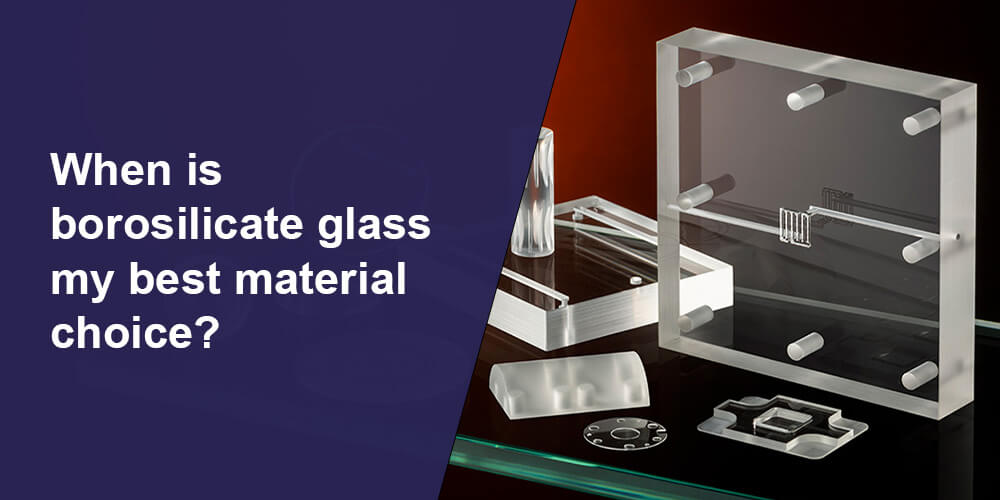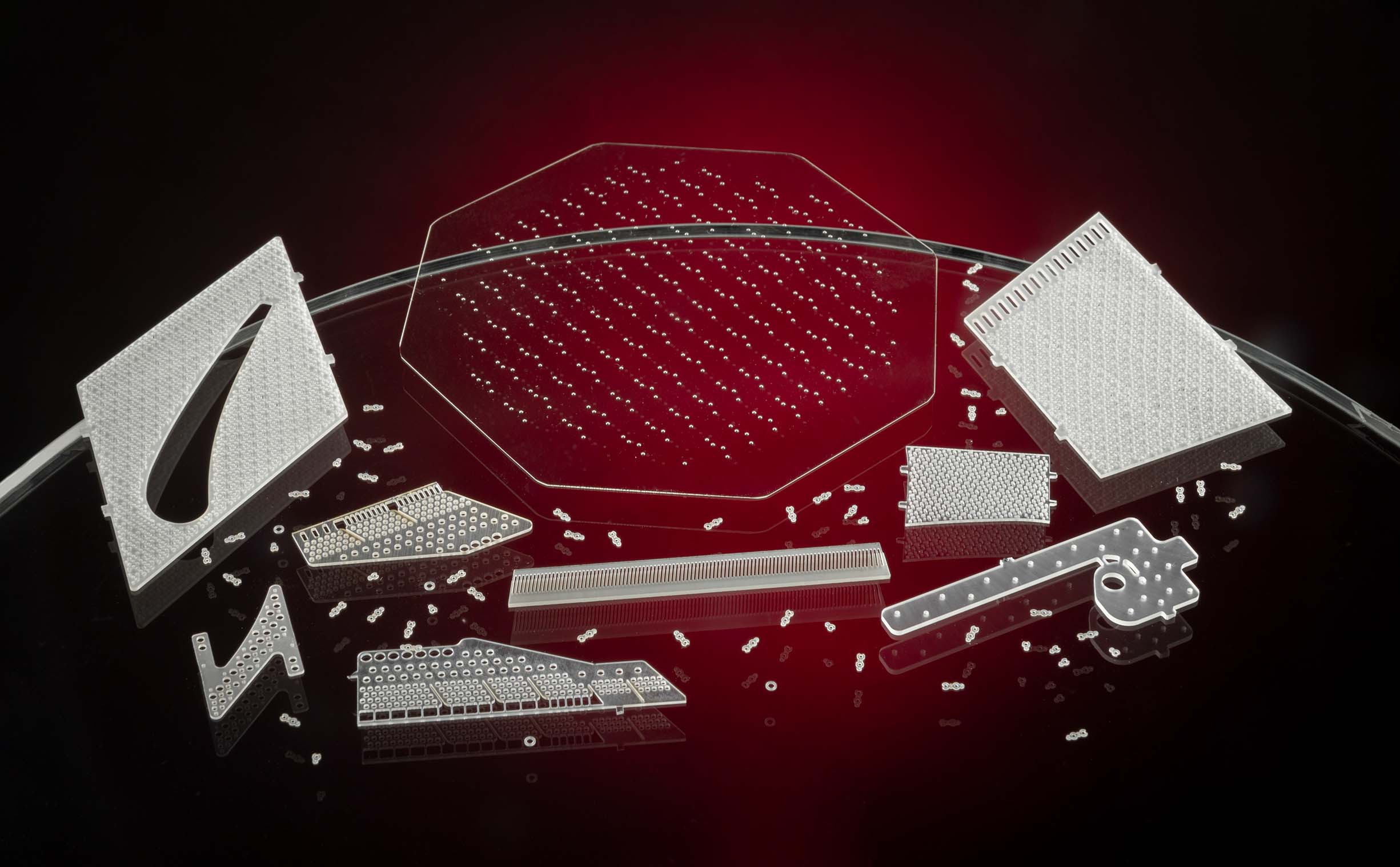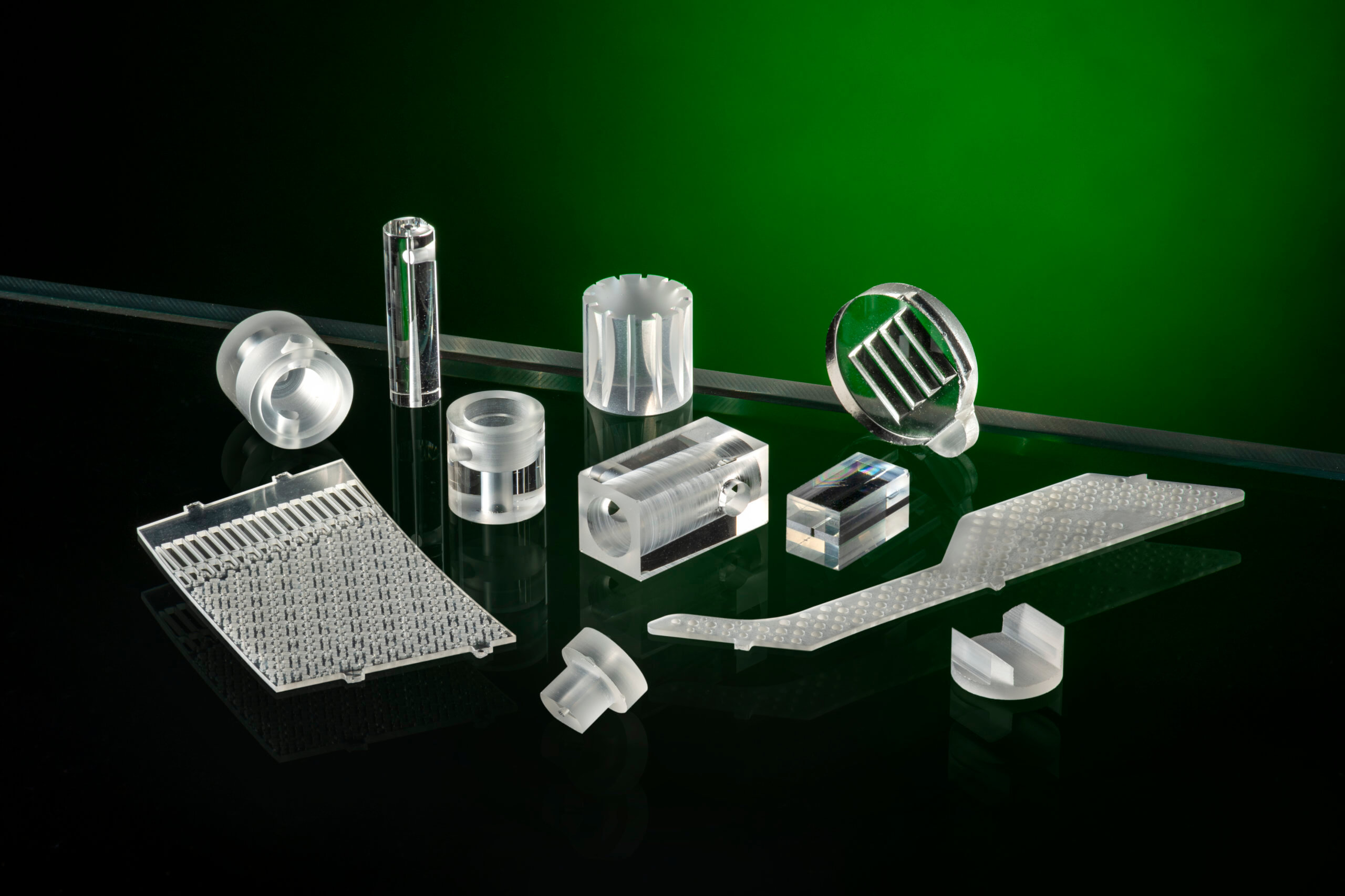
Due to its broad versatility and high reliability, borosilicate stands out as a cutting-edge material that consistently delivers. As you will read below, borosilicate glass offers a distinctive set of characteristics and benefits which cater to stringent demands across diverse industries and applications. Borosilicate’s low thermal expansion, coupled with outstanding material strength and high chemical durability, makes it an ideal choice in withstanding temperature fluctuations and resisting corrosion in acidic environments. Other notable characteristics such as optical clarity, facilitated by a smooth surface enhances visibility and observation in scientific and industrial processes. Furthering its appeal, Borosilicate is easy to clean as well as abrasion and scratch resistant.
Borosilicate glass has a broad temperature range and can withstand high operational temperatures in chemical and pharmaceutical processes as well as extreme cold conditions. The ruggedness of borosilicate glass and its many other technical benefits combined with its affordability, make it a very popular and economical choice compared to alternatives with similar properties. This inert and nonflammable material is used extensively in laboratory glassware and machinery, pharmaceutical tubing, analytical instruments, optical components, and lighting technology.
Are you considering using borosilicate glass? Here are some of the characteristics, benefits, and top applications for Borosilicate glass.
Characteristics of Borosilicate Glass:
1. Low Thermal Expansion
-
- Thermal expansion coefficient: 3.3 x 10–6 K–1
- Maintains integrity under temperature changes
2. High Material Strength
-
- Shear modulus: 26.5 – 27 GPa
- Knoop hardness: 400 – 480 at 20°C
- Withstands blunt force impact better than similar glassware
3. Chemical Stability
-
- Resistant to corrosion and breaking in acidic environments
4. Optical Clarity
-
- Smooth surface for unobstructed visibility
- Exceptionally high transparency
5. Cleanability
-
- Anti-stick, nonporous surface for easy cleaning
- Transparency allows visual inspection without interrupting processes
6. Corrosion Resistance
-
- Resistant to water, neutral and acidic solutions, concentrated acids, chlorine, bromine, iodine, and organic substances
- Superior corrosion resistance compared to plastics
7. Temperature Range
-
- Operating temperature: Up to 200°C (QVF borosilicate glass)
- Can withstand exposure to two different temperatures simultaneously
- Recommended for use down to –80°C
Benefits of Borosilicate Glass:
-
- Exceptionally high transparency
- Low CTE & ability to anodic bond
- High chemical resistance
- Thermal stability
- Low fluorescence
- Abrasion & scratch resistant
- Environmentally friendly
Top 5 Industries & Applications of Borosilicate Glass:
1.Biomedical & Life Sciences
-
- Medical analytical instruments
- Spectrophotometry
- Laboratory diagnostics
- Microfluidic and Lab-On-Chip
- Medical analytical instruments
2. Biomedical & Life Sciences
-
- Lenses and screens for instrumentation
3. Semiconductor
-
- Anodic bonding
4. Imaging & Lighting
-
- Photonics
- Lenses and screens
- Stages
- Optical Fibers
- Photonics
5. Electronics
-
- Insulation, tubes, and funnels
With a unique combination of characteristics, borosilicate glass is a versatile and reliable material across various industries, ensuring optimal performance in demanding applications.
